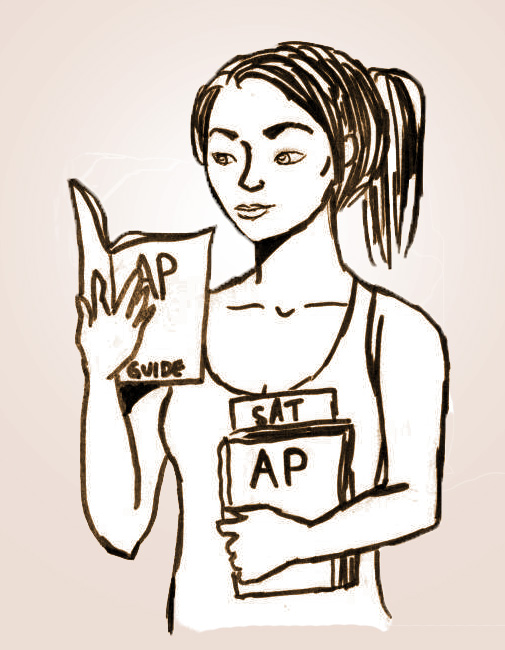
Although most students hate to admit it, teachers assign homework, quizzes, and tests for educational purposes beyond dragging grades down. Yet, when it comes down to preparing for a major exam, like an AP test or SAT subject test, the majority of students prefer a teacher’s guidance over poring through a study book for hours on a weekend. “There’s nothing like an every-day, one-hour presentation of content, plus the ability to collaborate with students and to do labs and to make mistakes,” assistant principal Jim Coe emphasizes.
While the best kind of learning may come from making mistakes in a class, another type of learning involves using other resources, plus an enormous amount of self-discipline and commitment. Here at Aragon, there is a mere handful of students who choose to “self-study” for AP courses that are not taught at school and take the exam in May.
Definitively speaking, students who “self-study” take the initiative to learn new material on their own time, whether it is by book or tutor or even television show. The most popular AP exams for self-studiers at Aragon are Computer Science, Macro- and Micro-economics, and occasionally European History.
Junior Nathan Zhang is one of the few Aragon students who is currently self-studying to take the AP Computer Science (APCS) exam. “I’m self-studying for it mostly because I want to get an AP done,” he explains.
Taking the APCS exam is not an easy task; the test requires mastery of Java, a complex, statically-typed, object-oriented computer programming language that is quite convenient for client-server web applications online.
Although it is not an easy test, it proves to be more worth its challenge for Zhang, who has a history of entering programming competitions and now has a new job with Quintara Biosciences, a DNA sequencing company. He says, “In terms of the APCS, I’m not so much concerned about learning Java as much as just memorizing everything I need to know.”
Quickly recapping his methods of self-study, he explains, “I [got] the APCS book from the library, and I also work to some degree with my dad’s company, which only uses Java. I’m also taking a course on algorithms online, which is taught in Java.”
Being exposed to Java in so many different ways is not unlike speaking a foreign language at home. For junior Megumi Nozawa, she felt confident about taking the AP Japanese test as a sophomore because she is semi-fluent in the language. “I decided to take the test, get it over with, and fill the open spot for Japanese by taking a different class this year.” In other words, self-studying, though hard work, allows some to take that one extra class they could not fit into their schedule.
Similarly, senior Olivia Simon decided to take the AP French exam early on in her freshman year. “A lot of what helped me with this test was intuition, from having spoken French for such a long time,” Simon says. “What was more difficult for me was the grammar and writing, so I tried to work on my vocabulary development. I went on eBay and bought myself a copy of this book called ‘French Three Years,’ which helped me with figuring out different tenses and grammar,” she explains.
And when it comes to SAT subject tests, self-studying is a given. No teacher exists to assign a specific path for reviewing the SAT II material.
After considering the many available choices for these tests, senior Jamie Lo decided to take the SAT Math I and the SAT US History subject tests last year. “For the Math I, I bought a Barron’s SAT book and read it myself,” she says. “And for the SAT US History test, it was perfect timing because we were studying for the AP test anyways, so I prepared for that SAT II test from the material we covered in class,” Lo explains.
The flexibility of the course’s “schedule” is one of self-studying’s upsides. “I can move at my own pace instead of the pace a teacher decides to set, and of course there’s no homework,” Zhang comments.
For Nozawa, self-studying was more worthwhile than taking the AP Japanese class in the way that it directly affected her test-taking skills. Having already familiarized herself with the test format, she says, “Self-studying helped me finish each part of the test early with spare time afterwards to go over my answers.”
On a different note, Simon prefers the experience of self-learning and practicing new material. She says, “My motivation wasn’t just to get points for college. My real incentive was to learn how to improve my writing, because that’s what I think is important.”




